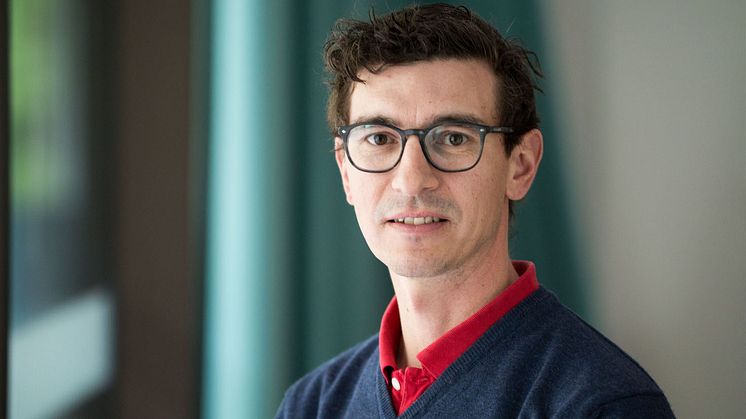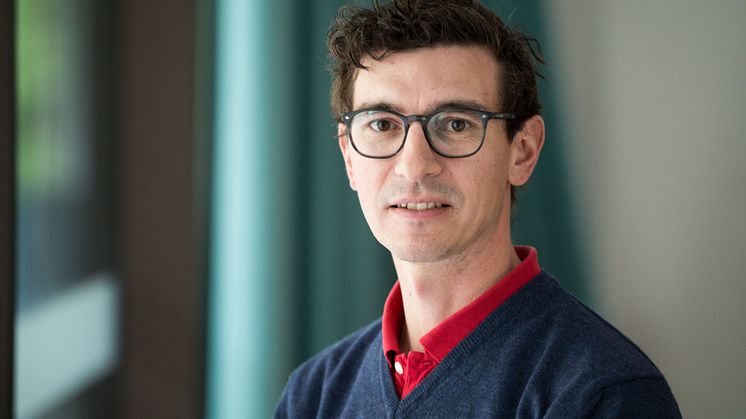
Press release -
New AI model improves MS diagnostics
To provide the right treatment for MS, it is important to know when the disease changes from relapsing-remitting to secondary progressive, a transition that is currently recognised on average three years too late. Researchers at Uppsala University have now developed an AI model that can determine with 90 per cent certainty which variant the patient has. The model increases the chances of starting the right treatment in time and thus slowing the progression of the disease.
Multiple sclerosis (MS) is a chronic, inflammatory disease of the central nervous system. In Sweden, there are approximately 22,000 people living with MS. Most patients start with the relapsing-remitting form (RRMS), which is characterised by episodes of deterioration with intervening periods of stability. Over time, many people transition to secondary progressive MS (SPMS), where their symptoms instead get steadily worse, without obvious breaks. Identifying this transition is important because the two different forms of MS require different treatments. Currently, the diagnosis is made on average three years after the transition begins, which can lead to patients receiving medicines that are no longer effective.
Based on Swedish MS data
The new AI model summarises clinical data from over 22,000 patients in the Swedish MS Registry. The model is based on data already collected during regular healthcare visits, such as neurological tests, magnetic resonance imaging (MRI) scans and ongoing treatments.
“By recognising patterns from previous patients, the model can determine whether a patient has the relapsing-remitting form or whether the disease has transitioned to secondary progressive MS. What is unique about the model is that it also indicates how confident it is in each individual assessment. This means that the doctor will know how reliable the conclusion is and how confident the AI is in its assessment,” says Kim Kultima, who led the study.
Ninety per cent accuracy
In the study, now published in the journal Digital Medicine, the model identified the transition to secondary progressive MS correctly or earlier than documented in the patient’s medical records in almost 87 per cent of cases, with an overall accuracy of around 90 per cent.
“For patients, this means that the diagnosis can be made earlier, which makes it possible to adjust the patient’s treatment in time and slow down the progression of the disease. This also reduces the risk of patients receiving medicines that are no longer effective. In the long term, the model could also be used to identify suitable participants for clinical trials – which could contribute to more effective and individualised treatment strategies,” Kultima concludes.
An open, anonymised version of the model is now available to researchers via the web service: https://msp-tracker.serve.scilifelab.se
Article
Sreenivasan, A.P., Vaivade, A., Noui, Y. et al. Conformal prediction enables disease course prediction and allows individualized diagnostic uncertainty in multiple sclerosis. npj Digit. Med. 8, 224 (2025). DOI: 10.1038/s41746-025-01616-z
Contact
Kim Kultima, researcher at the Department of Medical Sciences, Uppsala University
Email: kim.kultima@medsci.uu.se
Telephone: 0733-961844
Funders
This study has been made possible thanks to research support from the Swedish Research Council, NEURO Sweden, FORMAS, Region Uppsala, the Swedish Society of Medicine, the Swedish Society for Medical Research (SSMF), the Marianne and Marcus Wallenberg Foundation, and the Knut and Alice Wallenberg Foundation as part of the National Bioinformatics Infrastructure Sweden at SciLifeLab. The authors would also like to thank SciLifeLab for hosting the online version of the MSP tracker tool.
Topics
Categories
Founded in 1477, Uppsala University is the oldest university in Sweden. With more than 50,000 students and 7,500 employees in Uppsala and Visby, we are a broad university with research in social sciences, humanities, technology, natural sciences, medicine and pharmacology. Our mission is to conduct education and research of the highest quality and relevance to society on a long-term basis. Uppsala University is regularly ranked among the world’s top universities. www.uu.se

